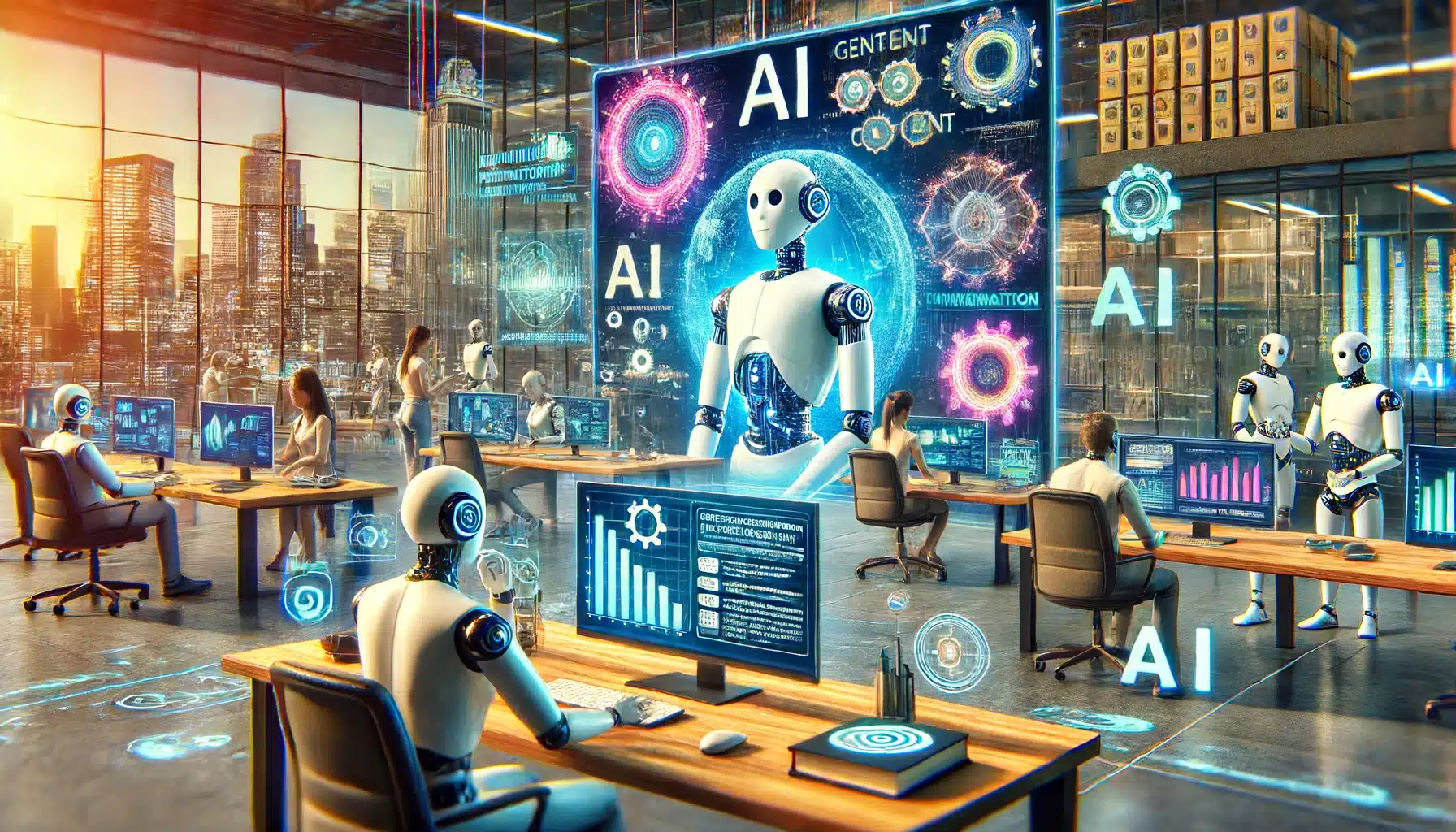The Rise of AI in Digital Marketing
In the rapidly evolving world of digital marketing, AI content generation and automation have emerged as game-changing technologies, reshaping the way businesses create, distribute, and optimize their content. As the demand for personalized, engaging, and data-driven content continues to grow, AI-powered solutions offer a powerful toolkit for marketers seeking to streamline their content creation processes and deliver exceptional experiences to their target audience.
Understanding AI Content Generation
AI content generation involves leveraging artificial intelligence technologies, such as natural language processing (NLP) and machine learning (ML), to create written, visual, or audio content automatically. These AI-powered tools can analyze vast amounts of data, understand context and semantics, and generate human-like content tailored to specific audiences, topics, or platforms.
Benefits of AI Content Generation
- Efficiency and Speed: AI content generation tools can create high-quality content in a fraction of the time it would take human writers, enabling marketers to scale their content production efforts without sacrificing quality.
- Personalization at Scale: By analyzing user data and preferences, AI algorithms can generate highly personalized content that resonates with individual audience segments, driving engagement and conversions.
- Cost-Effectiveness: Automating content creation processes with AI can significantly reduce costs associated with hiring and managing large content teams, allowing businesses to allocate resources more strategically.
- Overcoming Creative Blocks: AI-powered tools can help content creators overcome writer’s block by generating fresh ideas, angles, and narratives based on data-driven insights and trends.
Exploring AI Content Automation
AI content automation takes content generation a step further by streamlining and optimizing the entire content lifecycle, from ideation and creation to distribution and performance analysis. By integrating AI technologies into various stages of the content workflow, businesses can achieve unprecedented levels of efficiency, personalization, and ROI.
Key Components of AI Content Automation
- Content Ideation and Planning: AI algorithms can analyze audience data, search trends, and competitor content to generate data-driven content ideas and inform content strategy decisions.
- Content Optimization: AI-powered tools can optimize content for search engines, readability, and engagement by analyzing factors such as keyword density, sentence structure, and emotional tone.
- Automated Distribution: AI systems can automate the distribution of content across multiple channels, such as social media, email, and content management systems (CMS), based on predefined rules and audience preferences.
- Performance Analysis: AI-driven analytics tools can monitor content performance in real-time, providing actionable insights for optimization and helping marketers make data-driven decisions.
Implementing AI in Your Content Marketing Strategy
To successfully incorporate AI content generation and automation into your digital marketing strategy, consider the following best practices:
Define Clear Goals and KPIs
Establish well-defined goals and key performance indicators (KPIs) for your AI-powered content initiatives. This could include metrics such as engagement rates, conversion rates, or customer acquisition costs. Regularly track and analyze these KPIs to measure the effectiveness of your AI content efforts and make data-driven optimizations.
Ensure Data Quality and Relevance
The success of your AI content generation and automation efforts heavily relies on the quality and relevance of the data you feed into your AI systems. Regularly clean, update, and enrich your data sources to ensure your AI algorithms are working with accurate, up-to-date information that aligns with your target audience’s interests and preferences.
Foster Human-AI Collaboration
While AI can automate and streamline many aspects of content creation and distribution, human oversight and creativity remain essential. Foster a collaborative approach where human content strategists, writers, and editors work alongside AI tools to ensure the quality, relevance, and emotional resonance of your content.
Continuously Test and Optimize
Regularly test and refine your AI content generation and automation processes. Experiment with different AI models, data inputs, and content formats to identify what resonates best with your audience. Use the insights gleaned from your AI-driven analytics to continuously optimize your content strategy and adapt to evolving audience preferences and market trends.
Overcoming Challenges and Ethical Considerations
While AI content generation and automation offer significant benefits, they also present unique challenges and ethical considerations that marketers must navigate:
Maintaining Brand Voice and Authenticity
Ensuring that AI-generated content aligns with your brand’s unique voice, tone, and values is crucial for maintaining authenticity and building trust with your audience. Provide clear guidelines and training data to your AI systems to ensure consistency and adherence to your brand standards.
Avoiding Algorithmic Bias
AI algorithms can inadvertently amplify or perpetuate biases present in the data they are trained on. Regularly audit your AI systems for potential biases related to factors such as gender, race, or age, and take proactive steps to mitigate them, such as diversifying your training data and implementing fairness checks.
Ensuring Content Originality
While AI content generation tools can create unique content, there is a risk of unintentional plagiarism or duplication. Implement robust content originality checks and establish clear guidelines for the use of AI-generated content to maintain the integrity and credibility of your brand.
The Future of AI in Digital Marketing
As AI technologies continue to evolve and mature, we can expect to see even more sophisticated applications of AI in digital marketing:
- Hyper-Personalization: AI will enable marketers to deliver highly personalized content experiences tailored to individual users’ preferences, behaviors, and context in real-time.
- Multi-Channel Integration: AI-powered automation will seamlessly orchestrate content distribution and optimization across multiple channels, creating cohesive and engaging customer journeys.
- Predictive Content Optimization: Advanced AI algorithms will predict content performance and suggest optimizations before content is even published, enabling marketers to make proactive, data-driven decisions.
As AI continues to transform the digital marketing landscape, businesses that embrace these technologies and adapt their strategies will be well-positioned to stay ahead of the curve and deliver exceptional value to their customers.
Conclusion
AI content generation and automation are revolutionizing the way businesses approach digital marketing, enabling marketers to create and distribute personalized, engaging content at unprecedented scale and efficiency. By leveraging the power of AI technologies and implementing best practices for integration and optimization, businesses can unlock new levels of customer engagement, conversion, and growth.
However, the successful adoption of AI in digital marketing requires a strategic, customer-centric approach that prioritizes data quality, human-AI collaboration, and continuous optimization. As the AI landscape continues to evolve, marketers must remain agile, adaptable, and committed to delivering authentic, value-driven content experiences that resonate with their target audience.
By embracing the transformative potential of AI content generation and automation, businesses can position themselves at the forefront of the digital marketing revolution, driving sustainable growth and building lasting customer relationships in an increasingly competitive and dynamic marketplace.


